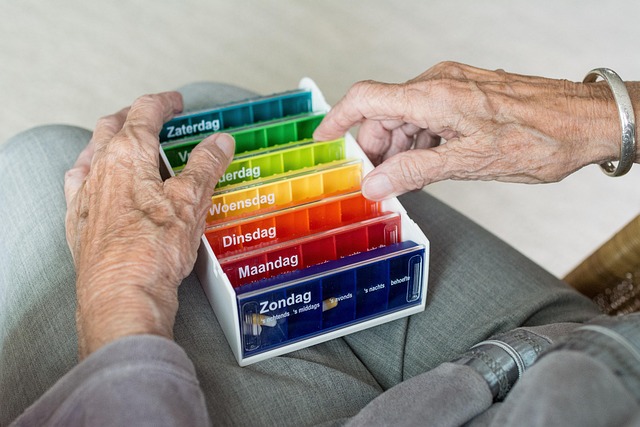End-of-life planning involves creating legal documents like living wills, healthcare directives (advanced care directives), and appointing a medical power of attorney. These ensure individuals maintain control over their medical decisions, facilitate open discussions about end-of-life preferences, and guide palliative care planning and hospice care. Consulting an end-of-life attorney ensures legal soundness while allowing patients to decide when to receive palliative care or hospice care, maintaining dignity and peace of mind.
In the delicate realm of end-of-life care, ensuring dignity and respect is paramount. As we navigate the challenges that lie ahead, proactive planning becomes the cornerstone of a meaningful final chapter. This comprehensive guide explores essential aspects of end-of-life preparation, from understanding the fundamentals of advanced care directives to integrating palliative and hospice care. By delving into legal documents such as living wills and healthcare directives, and seeking guidance from an end-of-life attorney, individuals can secure peace of mind while fostering compassionate medical power of attorney.
- Understanding End-of-Life Planning: The Foundation of Dignity
- Creating Legal Documents: Living Wills, Directives, and Power of Attorney
- Integrating Palliative and Hospice Care: Enhancing Quality of Life
- Navigating End-of-Life Legal Services for Peace of Mind
Understanding End-of-Life Planning: The Foundation of Dignity

End-of-life planning forms the bedrock upon which dignity and respect in care can be built. It involves proactive measures to ensure that individuals have control over their medical decisions, even when they may no longer be able to communicate them. This includes creating living wills, healthcare directives, or advanced care directives—legal documents that convey a person’s wishes for end-of-life care. These documents allow individuals to appoint a trusted advocate, often referred to as a medical power of attorney, who can make decisions on their behalf.
By anticipating and preparing for these scenarios, families are empowered to honour the individual’s autonomy while navigating the complexities of medical directives and legal services. This process also facilitates open conversations about end-of-life care preferences, including palliative care planning and hospice care considerations. Such proactive measures ultimately contribute to a more dignified transition during what can be an emotionally challenging time.
Creating Legal Documents: Living Wills, Directives, and Power of Attorney

Creating legal documents like living wills, healthcare directives, and power of attorney plays a pivotal role in ensuring dignity and respect during end-of-life care. These documents allow individuals to express their wishes regarding medical treatment and decision-making should they become unable to communicate. A living will, also known as an advance directive or medical directive, outlines specific medical treatments the patient does or does not want to receive under certain circumstances, including life-sustaining measures like artificial respiration or feeding tubes.
Similarly, a healthcare directive appoints a proxy or durable power of attorney for health care decisions. This individual acts on behalf of the patient, ensuring their end-of-life care aligns with their previously stated preferences and values. When properly executed, these legal documents guide healthcare providers in delivering palliative care and ensuring a smooth transition to hospice care when appropriate, upholding the patient’s autonomy and dignity throughout their final journey.
Integrating Palliative and Hospice Care: Enhancing Quality of Life

Integrating palliative and hospice care is a crucial aspect of ensuring dignity and respect in end-of-life planning. Palliative care focuses on providing relief from symptoms, improving quality of life, and offering emotional support for both patients and their families. By incorporating these services early in the healthcare directive, individuals can create a personalized plan that aligns with their wishes. A living will or advanced care directive acts as a legal framework, empowering patients to make decisions about their care, including when to receive palliative or hospice care. Consulting an end-of-life attorney ensures that these directives are legally sound and effectively communicate the patient’s preferences.
Hospice care planning is another vital component of enhancing quality of life at the end of life. Hospice provides comprehensive support, including medical, emotional, social, and spiritual assistance, tailored to the unique needs of each individual. By coordinating with healthcare providers and seeking guidance from medical power of attorney or end-of-life legal services, patients can receive compassionate care in their preferred setting—whether at home, in a hospice facility, or in a care centre. This holistic approach ensures that the patient’s dignity is maintained throughout the end-of-life care process, allowing them to live out their days with comfort, peace, and respect.
Navigating End-of-Life Legal Services for Peace of Mind

Navigating End-of-Life Legal Services for Peace of Mind
End-of-life planning is a crucial step in ensuring dignity and respect during care. One essential component is creating a living will or healthcare directive, which allows individuals to communicate their wishes regarding medical treatment, especially when they can no longer speak for themselves. This document instructs healthcare providers on the type of care a person wants or doesn’t want, including life-sustaining treatments. By preparing a living will, you gain control over your end-of-life care and alleviate unnecessary stress on your loved ones.
Consulting an end-of-life attorney is another vital step in this process. They can guide you through the creation of advanced care directives or medical power of attorney, which are legal documents that ensure your wishes are respected by healthcare providers and give your chosen representative the authority to make decisions on your behalf. These legal services offer peace of mind, knowing your end-of-life care planning is comprehensive and aligned with your values, even in challenging situations. Additionally, they facilitate smoother transitions into palliative care or hospice care, which are essential components of end-of-life care planning.
In ensuring dignity and respect in end-of-life care, comprehensive planning is key. By understanding the importance of advance directives like living wills and healthcare directives, integrating palliative and hospice care, and seeking guidance from an end-of-life attorney for legal services, individuals can navigate this sensitive period with peace of mind. These steps empower individuals to make informed decisions, respect their wishes, and uphold their autonomy during what can be a challenging time.
